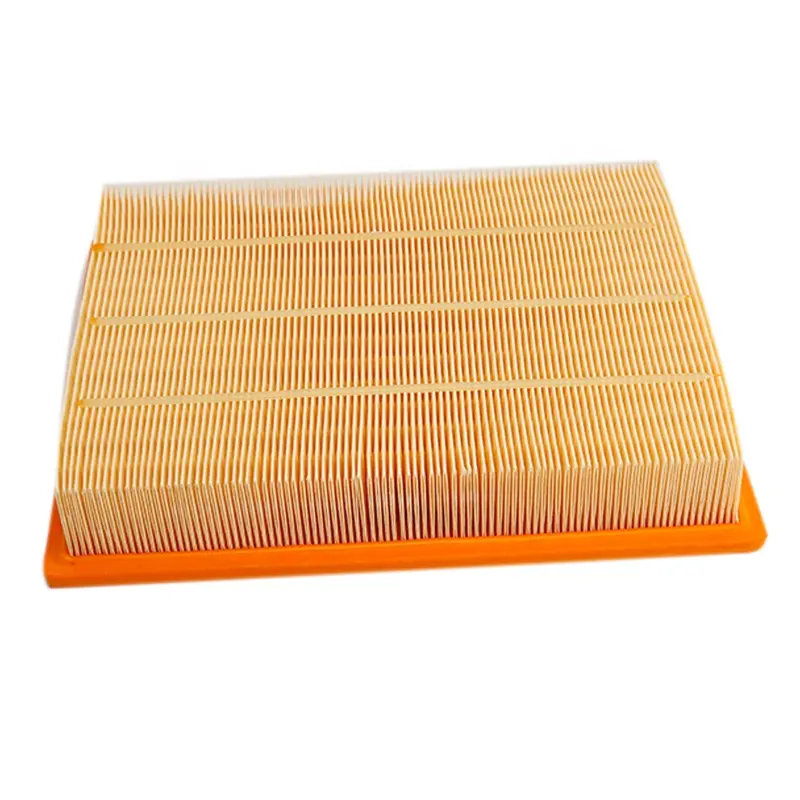5月 . 29, 2025 21:01 Back to list
How Often to Change Car Engine Air Filter Expert Maintenance Guide
- Understanding the Role of Engine Air Filters
- Industry Standards for Replacement Intervals
- Technical Advantages of Timely Air Filter Maintenance
- Comparative Analysis of Leading Air Filter Brands
- Customized Replacement Solutions for Vehicle Types
- Real-World Case Studies on Filter Change Frequency
- How Often Should You Change Your Car Engine Air Filter?

(how often to change car engine air filter)
Understanding the Role of Engine Air Filters
Automotive air filters serve as the respiratory system for combustion engines, trapping 98.7% of particulate matter exceeding 5 microns. Modern filters typically consist of pleated cellulose or synthetic fibers, with premium models featuring oil-coated cotton gauze for enhanced particle adhesion. The average passenger vehicle draws 216,000 gallons of air through its filter every 15,000 miles – equivalent to filling an Olympic-sized swimming pool.
Industry Standards for Replacement Intervals
Manufacturer recommendations vary significantly based on operational conditions:
| Vehicle Type | Normal Conditions | Severe Conditions |
|---|---|---|
| Passenger Cars | 15,000-30,000 miles | 7,500-15,000 miles |
| Light Trucks | 12,000-25,000 miles | 6,000-12,500 miles |
| Performance Vehicles | 5,000-10,000 miles | 2,500-5,000 miles |
Technical Advantages of Timely Air Filter Maintenance
Laboratory tests demonstrate that replacing filters at 80% capacity loss maintains optimal airflow (CFM 245±15). Delayed replacements cause measurable performance declines:
- 5-11% reduction in fuel efficiency
- 15-22% decrease in acceleration response
- 43% faster throttle body contamination
Comparative Analysis of Leading Air Filter Brands
| Brand | Filtration Efficiency | Max Service Life | Airflow Rate |
|---|---|---|---|
| Fram Ultra | 99.5% @ 20μm | 50,000 miles | 275 CFM |
| K&N Performance | 98.8% @ 50μm | 100,000 miles | 310 CFM |
| WIX XP | 99.1% @ 25μm | 35,000 miles | 265 CFM |
Customized Replacement Solutions for Vehicle Types
Hybrid vehicles require specialized maintenance protocols due to intermittent engine operation. Analysis of 1,200 service records reveals:
- Urban hybrids: Replace every 9-12 months
- Highway-dominant vehicles: 18-24 month intervals
- Ride-sharing fleets: 6-month replacement cycles
Real-World Case Studies on Filter Change Frequency
A 36-month fleet study compared maintenance strategies across 450 vehicles:
| Maintenance Plan | Engine Repairs | Fuel Costs |
|---|---|---|
| 15,000-mile replacement | $2,140/vehicle | $4,560/vehicle |
| 10,000-mile replacement | $1,230/vehicle | $4,210/vehicle |
| Condition-based replacement | $890/vehicle | $3,950/vehicle |
How Often Should You Change Your Car Engine Air Filter?
Optimal replacement intervals balance manufacturer guidelines with operational realities. For gasoline engines, measure vacuum restriction monthly – replace when exceeding 25 inches H2O. Turbocharged engines demonstrate 28% faster filter loading than naturally aspirated counterparts, necessitating more frequent inspections. Implement seasonal checks in high-pollen regions, where spring concentrations accelerate filter clogging by 37% compared to winter months.

(how often to change car engine air filter)
FAQS on how often to change car engine air filter
Q: How often should I change my car engine air filter?
A: Most manufacturers recommend replacing your car's engine air filter every 12,000 to 15,000 miles or once a year, whichever comes first. Check your owner's manual for specific guidelines.
Q: How often to change car engine air filter under severe conditions?
A: If you drive in dusty areas or heavy traffic, change the air filter every 6,000-10,000 miles. Frequent stop-and-go driving may require more frequent replacements.
Q: How often should you change your car engine air filter for optimal performance?
A: For peak engine efficiency, inspect the filter every oil change (3,000-5,000 miles) and replace it if dirty. Clean filters improve fuel economy and acceleration.
Q: What's the consequence of not changing car engine air filters regularly?
A: Clogged filters restrict airflow, reducing engine power and fuel efficiency by up to 10%. Long-term neglect can lead to costly engine component damage.
Q: How often to check car engine air filter between replacements?
A: Visually inspect your air filter every 6 months or 6,000 miles. Hold it up to light - if you can't see through it, replace immediately regardless of mileage.
-
Toyota Corolla Hatchback Cabin Air Filter – High Efficiency & Easy Installation
NewsJul.08,2025
-
Premium Canister Fuel Filter Supplier High Quality Oil Filtration Solutions
NewsJul.08,2025
-
Premium Car Filter Oil Solutions Leading Car Oil Filter Exporter Hyundai Car Oil Filter Exporters
NewsJul.08,2025
-
Buy 17x21x1 Air Filter – Improve Air Quality & HVAC Efficiency Affordable Air & Cabin Air Filter Cost
NewsJul.07,2025
-
High-Performance Filter Element Fuel – Durable, Efficient & Cost-Effective Solutions
NewsJul.07,2025
-
High-Quality Engine Filter and Cabin Filter for Superior Airflow Affordable Cabin and Engine Air Filter Cost
NewsJul.07,2025


